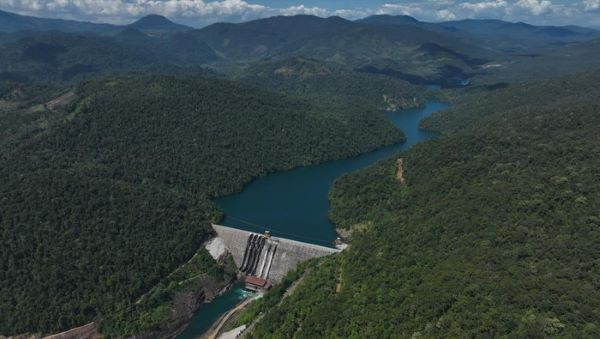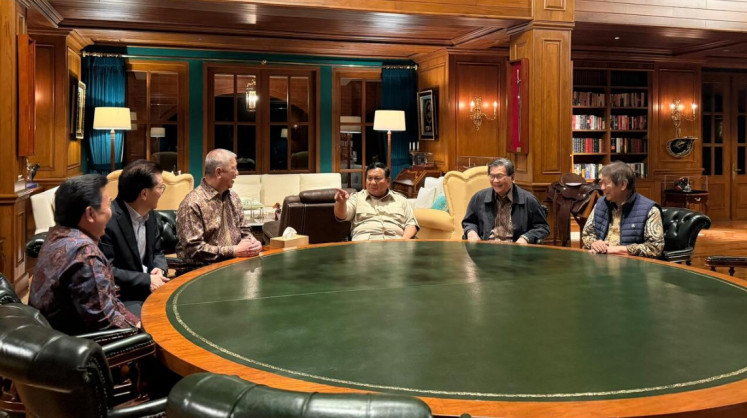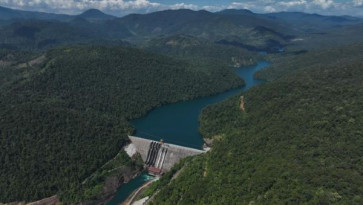Popular Reads
Top Results
Can't find what you're looking for?
View all search resultsPopular Reads
Top Results
Can't find what you're looking for?
View all search resultsEmbracing a just energy transition: ASEAN's path to a sustainable future
ASEAN countries urgently need to take a collaborative approach in developing a cohesive strategy that incorporates social safety nets to build a pathway toward an equitable and inclusive energy transition for the whole region, which will in turn propel the bloc onto the global stage as a in sustainable development leader.
Change text size
Gift Premium Articles
to Anyone
 Shared power: The forested highlands of South Sulawesi’s East Luwu regency tower over the Balambano hydropower plant in Wasuponda village on July 29, 2023. Built to support the operations of nickel producer PT Vale Indonesia, the power plant generates 110 megawatts, of which 10 MW are distributed to the surrounding community. (Antara/Jojon)
Shared power: The forested highlands of South Sulawesi’s East Luwu regency tower over the Balambano hydropower plant in Wasuponda village on July 29, 2023. Built to support the operations of nickel producer PT Vale Indonesia, the power plant generates 110 megawatts, of which 10 MW are distributed to the surrounding community. (Antara/Jojon)
A
SEAN countries are now shifting from traditional energy sources like coal to renewables, a change that will impact the region’s nearly 700 million lives. With most member states aiming for net-zero emissions by 2050, this transition is not only necessary but also an opportunity to create a fairer, greener economy.
This shift toward sustainable energy underscores the importance of a just transition that carefully addresses the socioeconomic impacts on communities and workers from traditional sectors. Internationally recognized frameworks and regional directives emphasize the need for robust social dialogue, active stakeholder involvement and the creation of equitable, green job opportunities.
Comprehensive strategies for reskilling and upskilling workers, ensuring social protection and fostering inclusive economic growth are vital. A study by Obviously Sustainable (OS), supported by the Konrad-Adenauer-Stiftung Regional Programme on Energy Security and Climate Change Asia-Pacific (RECAP), examines how Indonesia and Malaysia are navigating these changes.
The journey begins with strong social dialogue and active stakeholder participation.
Indonesia's state electricity company PLN and Malaysia's Petronas have taken significant steps to include workers and community insights in their strategic plans. PLN's collaboration with its labor association and Petronas's implementation of the free, prior and informed consent (FPIC) framework are prime examples of initiatives designed to ensure stakeholders to have significant influence on energy policies.
Feedback from all relevant stakeholders is crucial for governments and companies to devise strategic plans for an equitable energy transition. While entities like PLN and Petronas have well-defined strategies, others are still developing their approaches.
For example, Indonesia's national energy company Pertamina is in the early stages of crafting a transition strategy. Although it has set emissions reduction targets and committed to expanding its portfolio in the "new and renewable energy" (NRE) sector, its strategic planning is still evolving to fully incorporate the principles of a just transition.


















